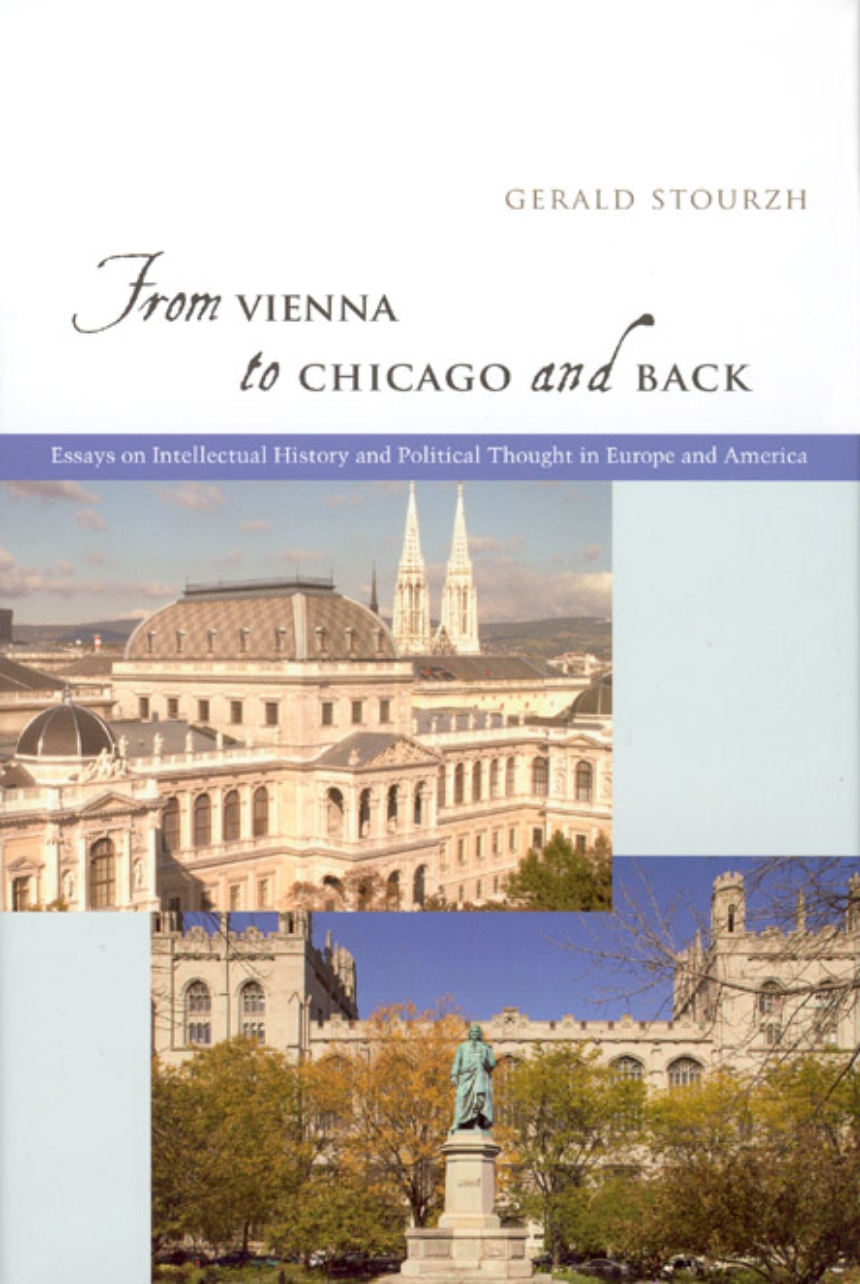From Vienna to Chicago and Back
Essays on Intellectual History and Political Thought in Europe and America
From Vienna to Chicago and Back
Essays on Intellectual History and Political Thought in Europe and America
Spanning both the history of the modern West and his own five-decade journey as a historian, Gerald Stourzh’s sweeping new essay collection covers the same breadth of topics that has characterized his career—from Benjamin Franklin to Gustav Mahler, from Alexis de Tocqueville to Charles Beard, from the notion of constitution in seventeenth-century England to the concept of neutrality in twentieth-century Austria.
This storied career brought him in the 1950s from the University of Vienna to the University of Chicago—of which he draws a brilliant picture—and later took him to Berlin and eventually back to Austria. One of the few prominent scholars equally at home with U.S. history and the history of central Europe, Stourzh has informed these geographically diverse experiences and subjects with the overarching themes of his scholarly achievement: the comparative study of liberal constitutionalism and the struggle for equal rights at the core of Western notions of free government. Composed between 1953 and 2005 and including a new autobiographical essay written especially for this volume, From Vienna to Chicago and Back will delight Stourzh fans, attract new admirers, and make an important contribution to transatlantic history.
384 pages | 6 x 9 | © 2007
History: American History, European History
Philosophy: Philosophy of Society
Political Science: Classic Political Thought
Reviews
Table of Contents
Foreword by John W. Boyer
Introduction: Traces of an Intellectual Journey
Part I: Anglo-American History
1. Reason and Power in Benjamin Franklin’s Political Thought (1953)
2. William Blackstone: Teacher of Revolution (1970)
3. Constitution: Changing Meanings of the Term from the Early Seventeenth Century to the Late Eighteenth Century (1988)
4. Charles A. Beard’s Interpretations of American Foreign Policy (1957)
Part II: Austrian History - Imperial and Republican
5. The Multinational Empire Revisited: Reflections on Late Imperial Austria (1992)
6. Ethnic Attribution in Late Imperial Austria: Good Intentions, Evil Consequences (1994)
7. The National Compromise in the Bukovina (1996)
8. Max Diamant and Jewish Diaspora Nationalism in the Bukovina (2002)
9. The Age of Emancipation and Assimilation: Liberalism and Its Heritage (2001)
10. An Apogee of Conversions: Gustav Mahler, Karl Krause, and fin de Siècle Vienna (2004)
11. The Origins of Austrian Neutrality (1988)
Part III: The Tocquevillian Moment: From Hierarchical Status to Equal Rights
12. Equal Rights: Equalizing the Individual’s Status and the Breakthrough of the Modern Liberal State (1996)
13. Liberal Democracy as a Culture of Rights: England, the United States, and Continental Europe (2000)
14. Tocqueville’s Understanding of "Conditions of Equality" and "Conditions of Inequality" (2006)
15. The Unforgivable Sin: An Interpretation of Albert Camus’ The Fall (1961)
Appendix: Bibliographical Information
Index of Names
Index of Subjects
